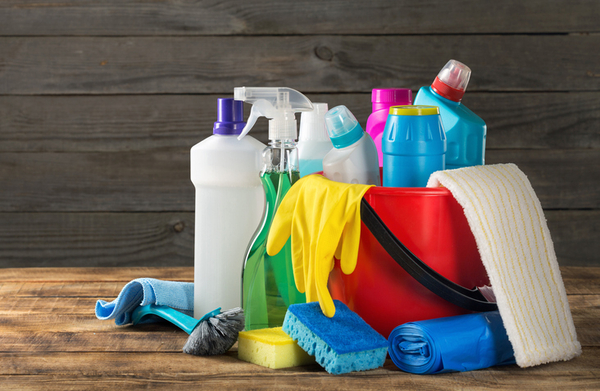Shark Tank Season 15: New England’s Hottest Products
As Shark Tank Season 15 continues to capture the imagination of entrepreneurs and consumers alike, the most in-demand products have been revealed, with Gatsby Chocolate leading the pack. What products…

NEW YORK, NY – SEPTEMBER 23: Barbara Corcoran attends the Tribeca Talks Panel: 10 Years Of “Shark Tank” during the 2018 Tribeca TV Festival at Spring Studios on September 23, 2018 in New York City. (Photo by Dia Dipasupil/Getty Images)
(Photo by Dia Dipasupil/Getty Images)As Shark Tank Season 15 continues to capture the imagination of entrepreneurs and consumers alike, the most in-demand products have been revealed, with Gatsby Chocolate leading the pack. What products are making waves, particularly in the New England states?
Gatsby Chocolate Takes the Cake (or the Bar)
Topping the list with a whopping 27,573 average monthly searches in the US, Gatsby Chocolate has clearly hit the sweet spot. Founded by Doug Bouton in 2021, this delectable treat offers chocolate bars that are rich in flavor but low in calories. With each bar containing just 180-210 calories, and an array of vegan and plant-based options, Gatsby Chocolate is perfect for the health-conscious chocoholic.
Massachusetts residents are especially eager to indulge, with an average of 12.81 searches per 100,000 people. It seems Bay Staters can’t get enough of this guilt-free delight!
Puffcorn Puffs Up the Search Volumes
Coming in second is Like Air Puffcorn, a crunchy, flavorful snack that’s low in calories and free from gluten. Averaging 20,356 searches per month in the US, this popcorn alternative boasts flavors like Classic, Pancake, American Cheddar, and Cinnamon Bun. Its light and airy texture, devoid of hard kernels, makes it a hit among snackers.
New Hampshire Loves Gently Soap
In fourth place, Gently Soap, with 13,219 monthly searches, is the go-to product for those with sensitive skin. These natural, herb-filled soaps are free from synthetic fragrances, making them a soothing choice for conditions like eczema. New Hampshire residents are leading the charge with an average of 6.42 searches per 100,000 people, indicating a strong preference for gentle skincare solutions in the Granite State.
New England’s Notable Mentions
Another product catching the eye in New England is Glove Wrap, ranking ninth overall with 10,699 monthly searches. This innovative product makes breaking in new sports gloves a breeze, and New Hampshire is particularly keen, with 5.17 searches per 100,000 residents.
So, whether you’re a Massachusetts chocoholic or a New Hampshire athlete, there’s something exciting from Shark Tank Season
Fragrances Are Harmful! Replace These 13 Products At Home
In our modern society, fragrances are everywhere, but they are harmful to our health. They cover our bodies, our homes, and our daily routines. From perfumes and colognes to scented candles and air fresheners, we often associate pleasant smells with a sense of well-being. However, what many of us fail to realize is that behind these enticing scents lie a multitude of potential health hazards. Fragrances.
Most commercial fragrances, whether found in personal care products, cleaning agents, or household items, are composed of synthetic chemicals. These chemicals are often undisclosed or labeled vaguely as "fragrance" or "parfum." This lack of transparency makes it difficult for consumers to make informed choices about the products they use and the potential risks associated with them- like these things!
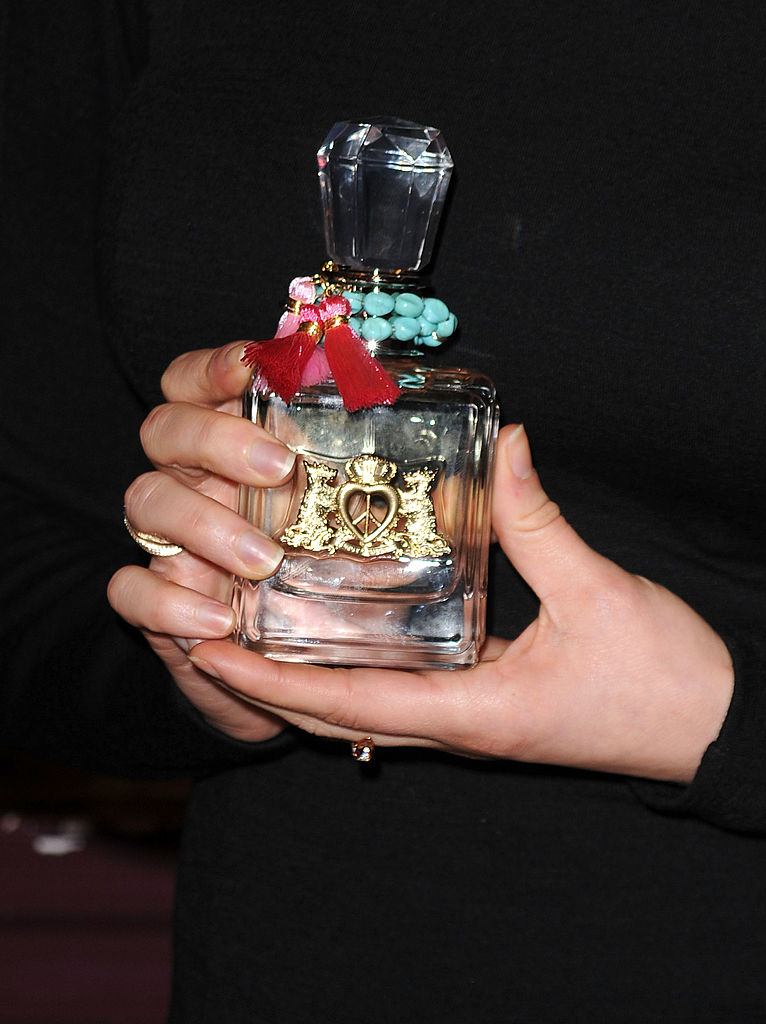
Many celebrities have released their own perfumes. If they only were aware how harmful "fragrances" were to the people purchasing them
Harmful Fragrances Cause Respiratory Issues
One of the primary concerns associated with fragrances is their impact on respiratory health. Synthetic fragrances emit volatile organic compounds (VOCs) into the air, which can be inhaled and irritate the respiratory system. These VOCs include formaldehyde, benzene, toluene, and other hazardous chemicals known to cause respiratory problems such as asthma, allergies, and even chronic obstructive pulmonary disease (COPD). Some of those products include:
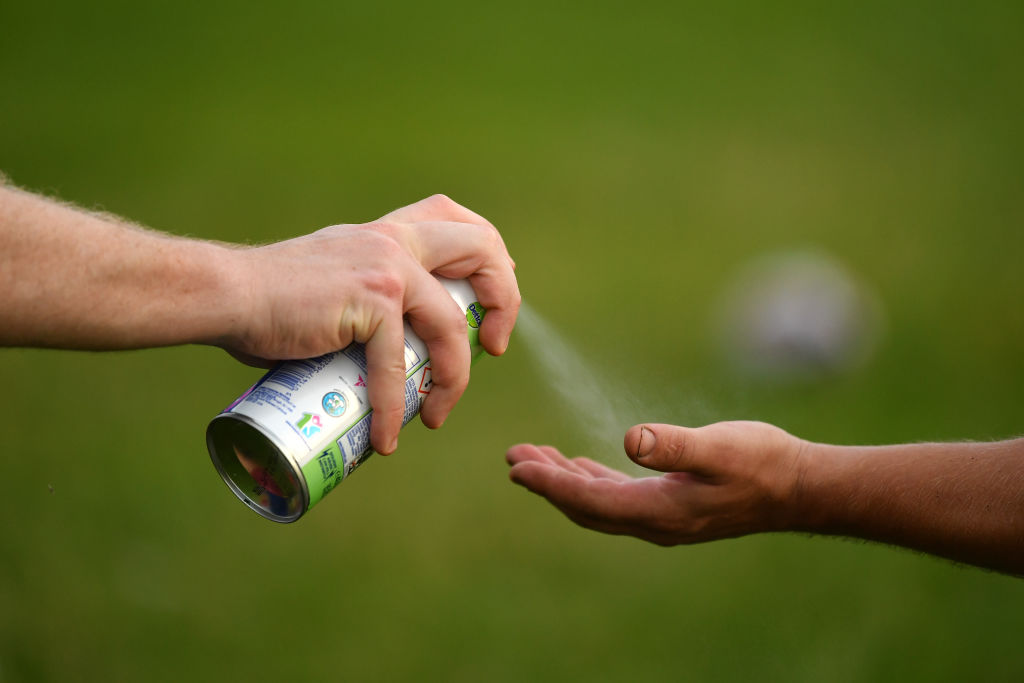 (Photo by Dan Mullan/Getty Images)
(Photo by Dan Mullan/Getty Images)Skin Irritation and Sensitization
Fragrances can also wreak havoc on our skin. Many people experience skin irritation, redness, itching, and rashes when exposed to synthetic fragrances. These reactions are particularly common in people with sensitive skin or pre-existing conditions like eczema. Prolonged exposure to fragrances may lead to sensitization, whereby the immune system becomes hypersensitive to certain chemicals, resulting in allergic reactions upon subsequent exposures.
Hormonal Disruption
Unbeknownst to many, certain chemicals used in fragrances have been linked to endocrine disruption. Phthalates, for example, are commonly used as solvents in fragrances and have been associated with hormonal imbalances. They may interfere with reproductive functions, disrupt the normal development of the endocrine system, and even contribute to fertility problems.
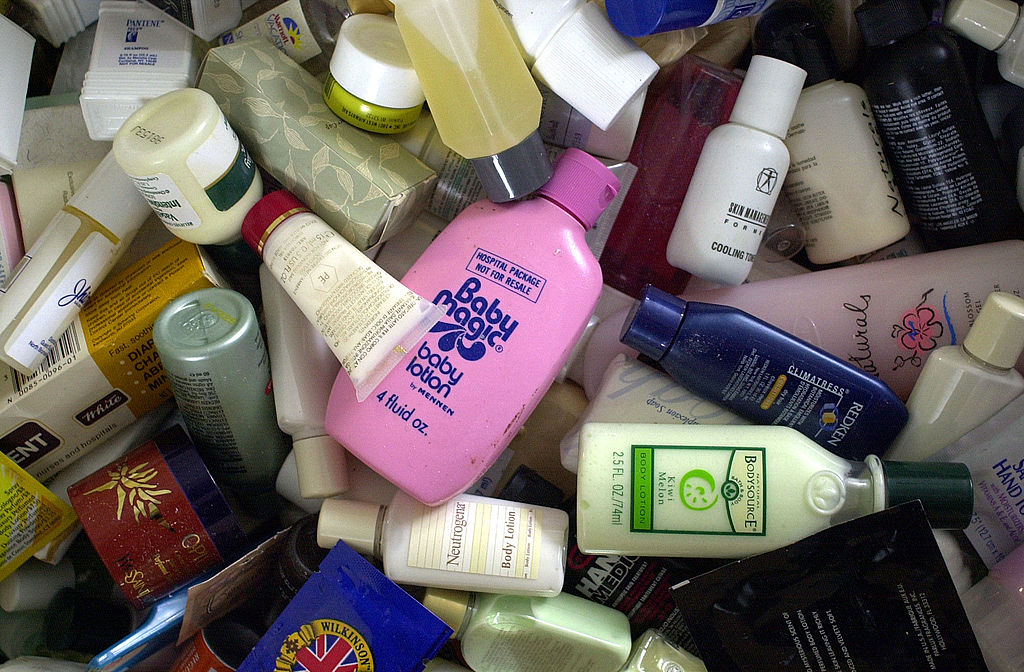 (Photo by William Thomas Cain/Getty Images)
(Photo by William Thomas Cain/Getty Images)Neurological Effects
Studies have shown that some fragrance chemicals, such as synthetic musks, may have neurotoxic effects. These substances have been found to accumulate in the body over time and have the potential to disrupt the normal functioning of the nervous system. Exposure to such chemicals has been associated with headaches, migraines, dizziness, and even cognitive impairment.
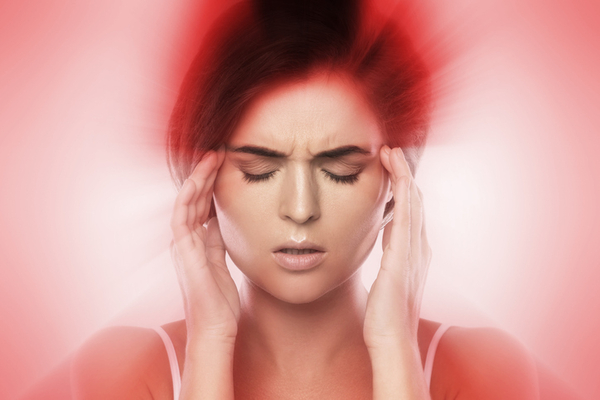
Environmental Impact
The detrimental effects of fragrances are not limited to human health alone. When we wash away personal care products containing synthetic fragrances or spray air fresheners in our homes, these chemicals eventually find their way into the environment. Fragrance compounds, along with other pollutants, can contaminate air, water sources, and soil, leading to ecological imbalances and potentially harming wildlife and ecosystems.
We Should Avoid These Harmful Fragrances At All Costs
While we may enjoy the pleasant scents that fragrances provide, it is crucial to be aware of the potential health risks they pose. The synthetic chemicals used in many commercial fragrances can have far-reaching consequences for our respiratory system, skin, hormones, and even neurological well-being. To protect our health and that of the environment, it is advisable to opt for fragrance-free or naturally scented products. Reading labels, seeking out eco-friendly alternatives, and advocating for greater transparency in labeling practices can empower us to make informed choices and promote safer, healthier living.
Remember, the sweet smell of health is far more valuable than any artificial fragrance that comes at a hidden cost.
Avoid These Harmful Fragrances And Live A Healthier Lifestyle
Watch Out For Personal Care Products
Fragrances are prevalent in personal care items such as perfumes, colognes, deodorants, body lotions, shampoos, conditioners, soaps, and shower gels. These products often contain synthetic fragrances that can lead to skin irritation, respiratory issues, and hormonal disruption.
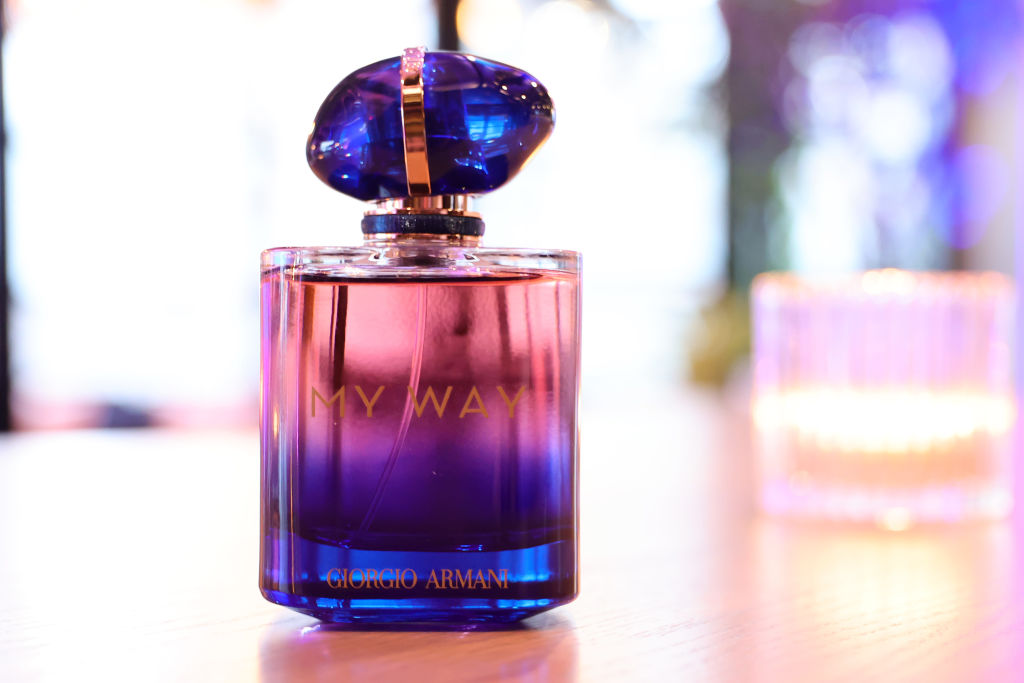
(Photo by Theo Wargo/Getty Images for Armani beauty)

(Photo by Emma McIntyre/Getty Images for Secret Deodorant)

Avoid Cleaning Products
Many household cleaning agents, including all-purpose cleaners, laundry detergents, fabric softeners, and dishwashing liquids, are scented with fragrances. These fragrances can release VOCs into the air, which can irritate the respiratory system and contribute to indoor air pollution.


Air Fresheners
Air fresheners, including aerosol sprays, plug-in diffusers, and scented candles, are popular for masking unpleasant odors. However, these products often contain synthetic fragrances that emit VOCs and can contribute to respiratory problems, allergies, and even trigger asthma attacks.

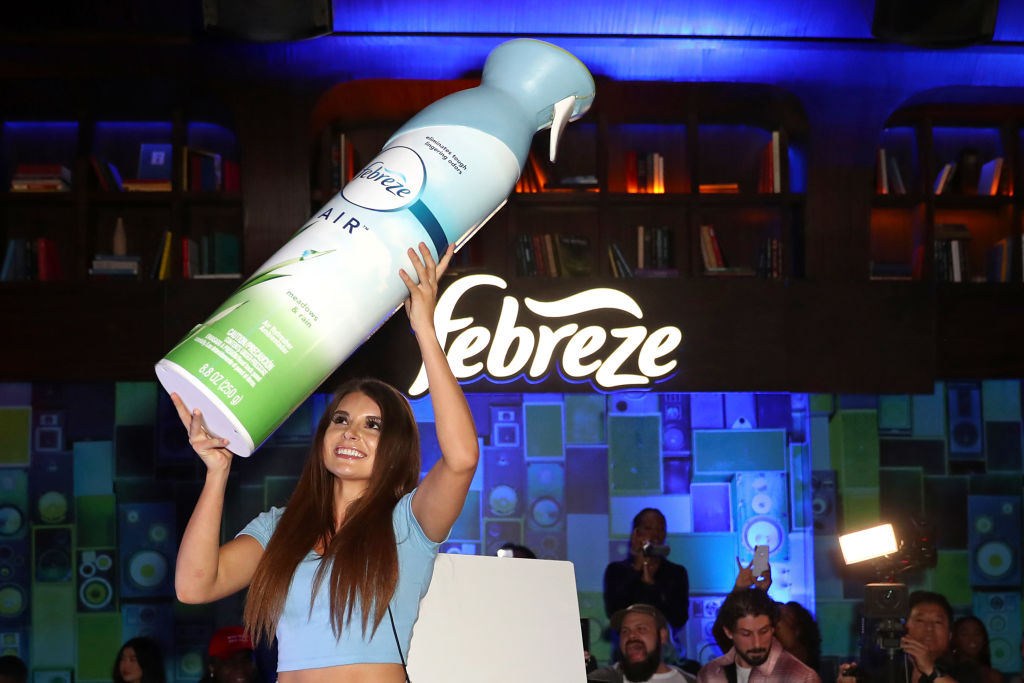
Cosmetics and Makeup
Fragrances are commonly found in cosmetics, including foundations, powders, blushes, eyeshadows, lipsticks, and perfumed makeup products. These fragrances can cause skin irritation, particularly in individuals with sensitive skin or skin conditions like eczema.

Household Products
Fragranced household items, such as furniture polishes, carpet cleaners, fabric sprays, and scented oils, can introduce potentially harmful fragrances into your living environment. Similar to cleaning products, these items can release VOCs that affect indoor air quality and respiratory health.
